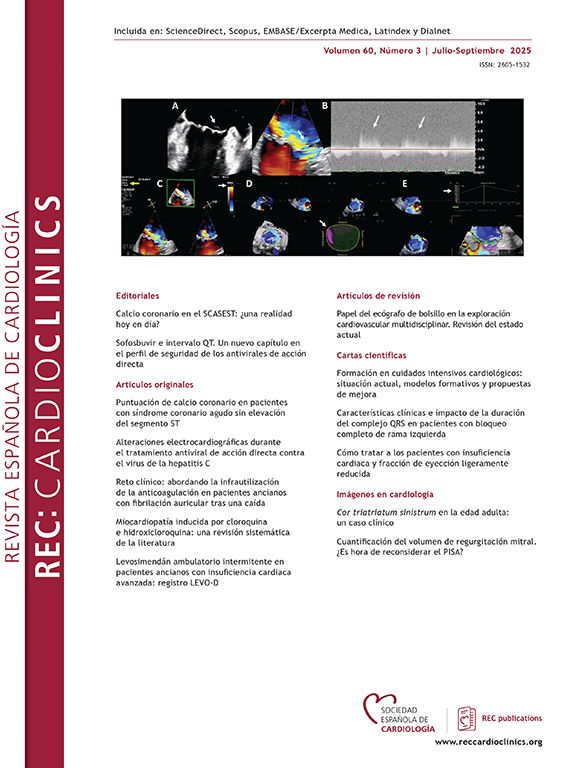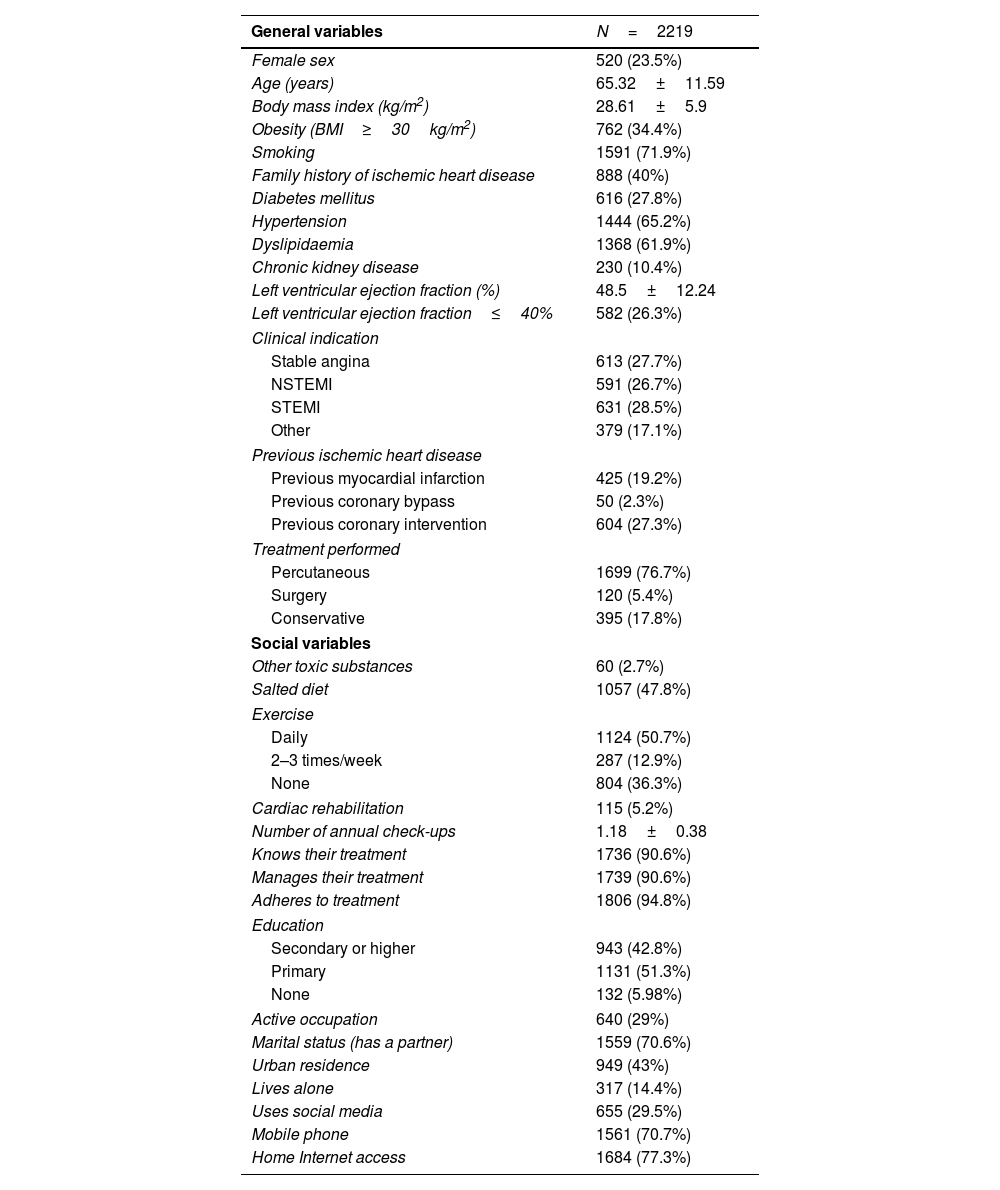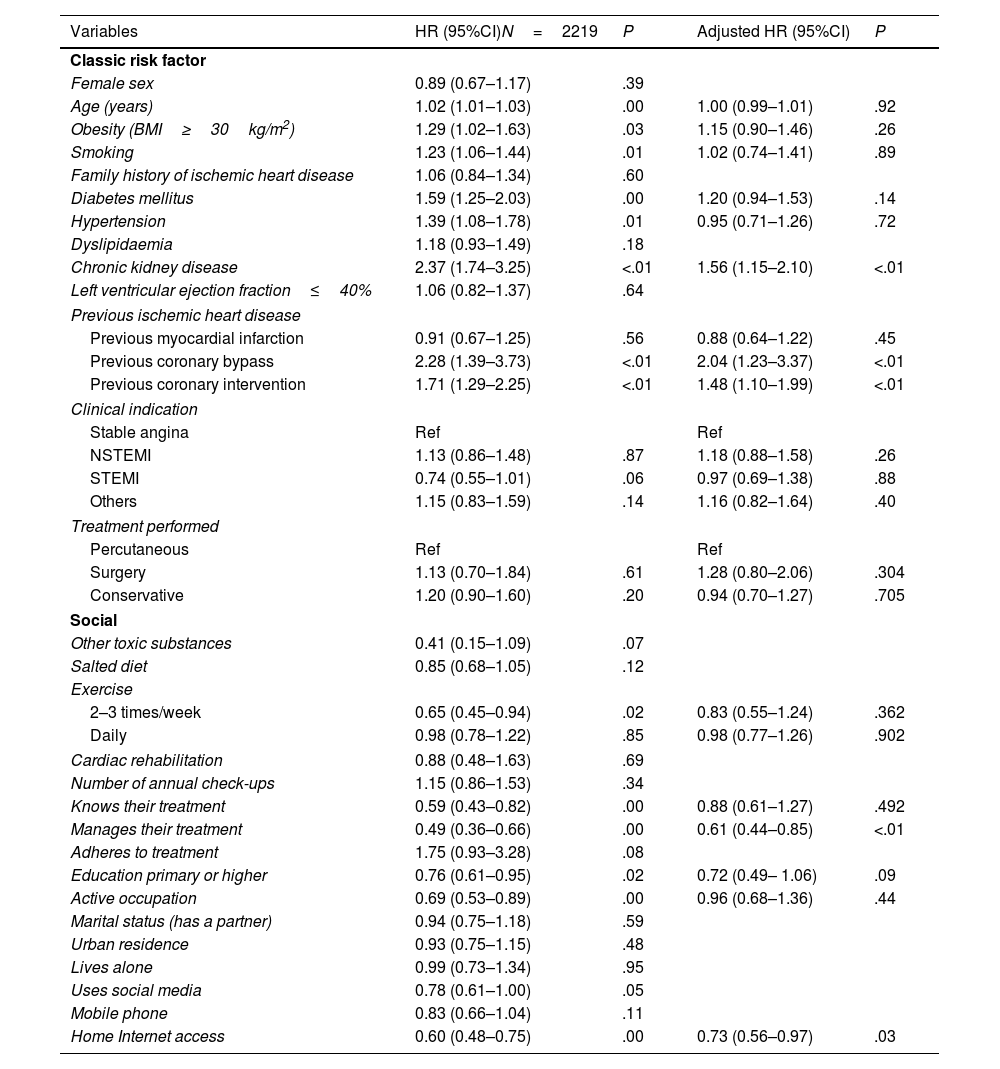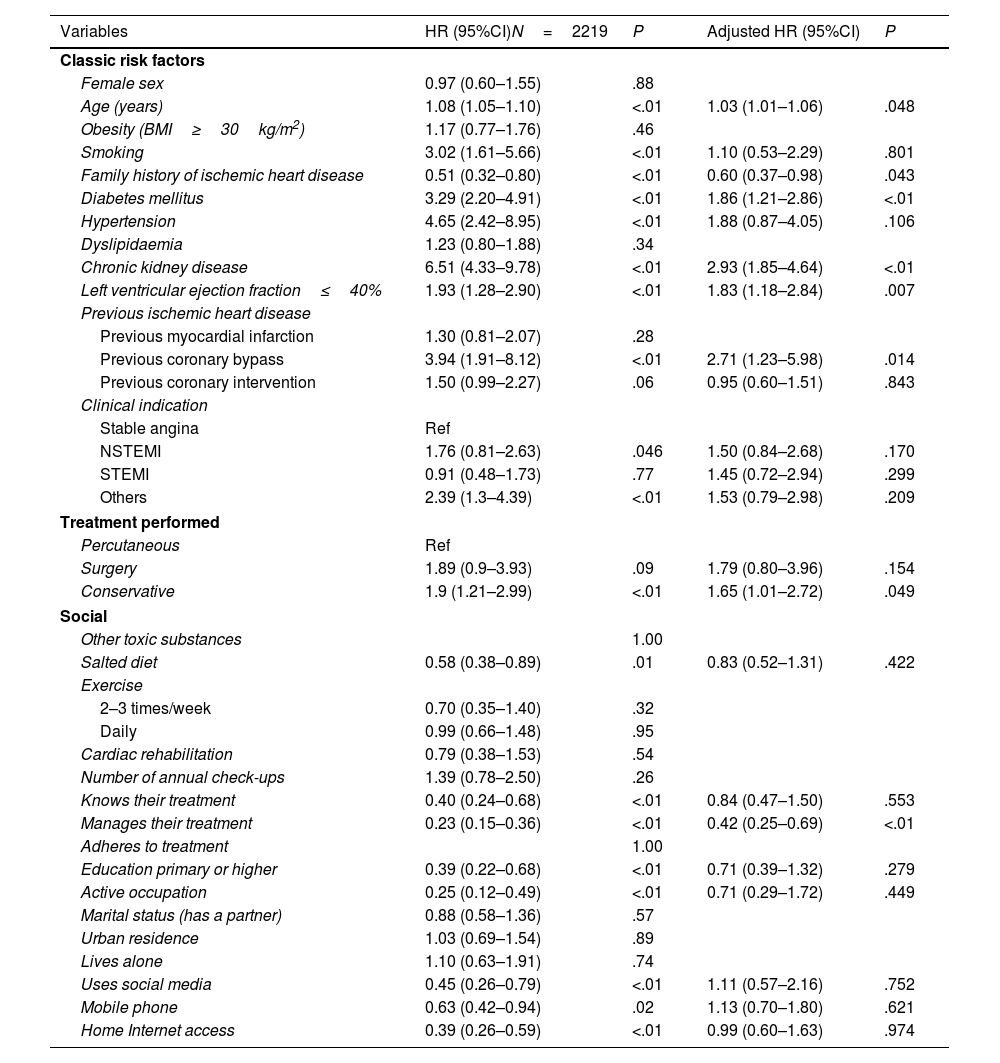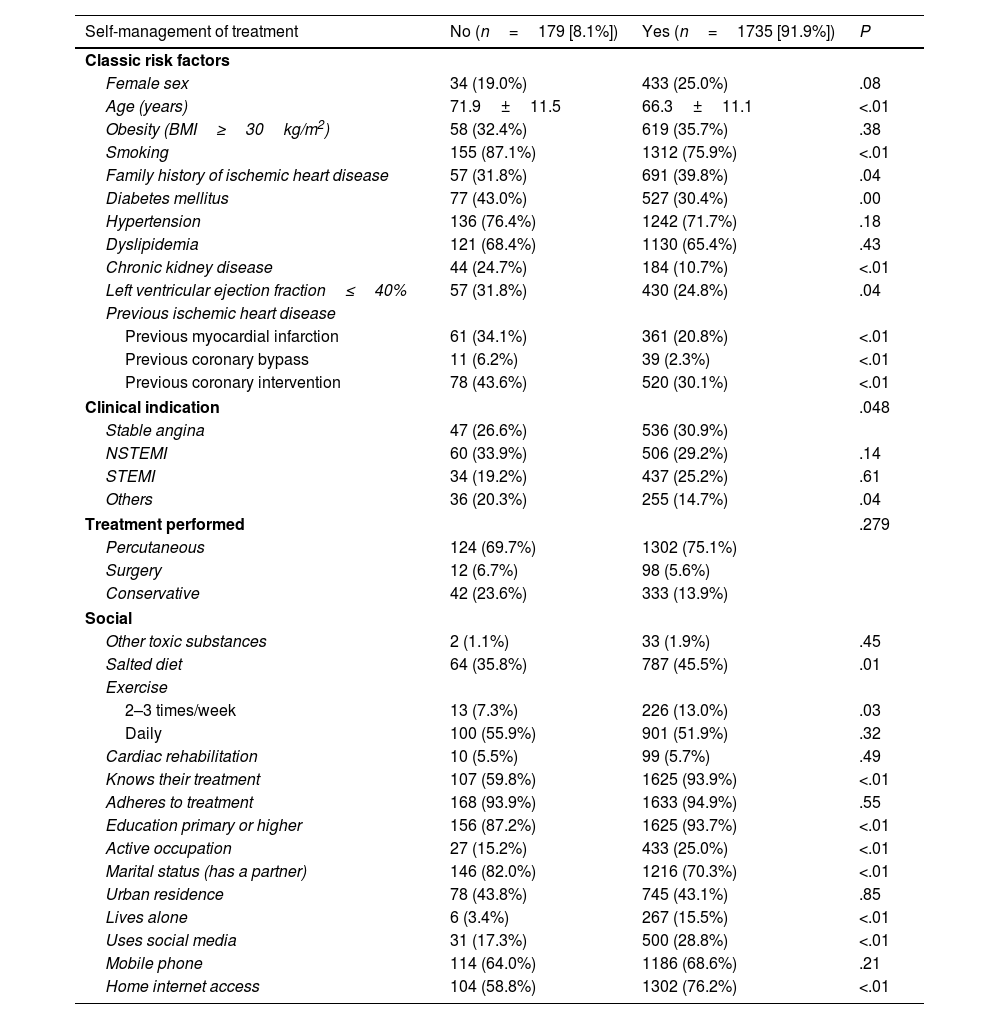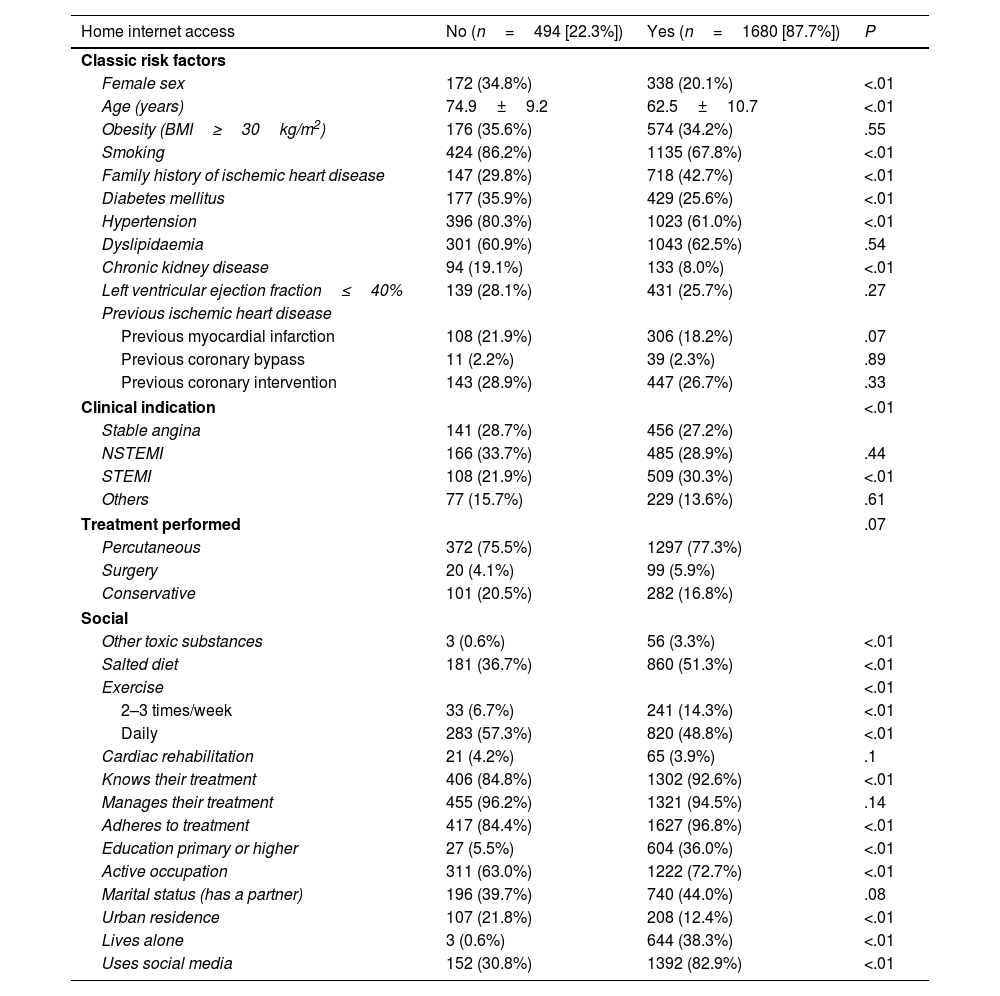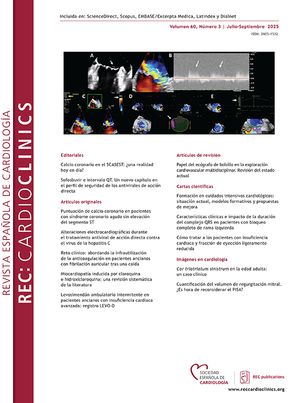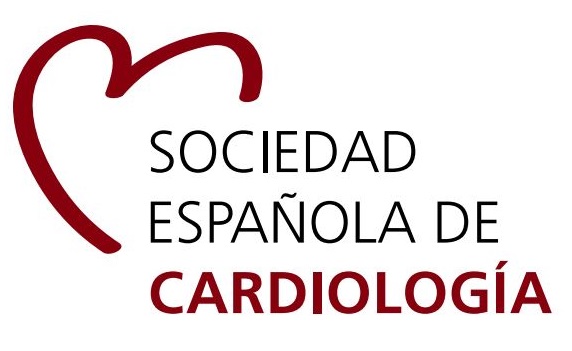Cardiovascular disease accounts for a considerable proportion of both morbidity and mortality. In addition to well-established risk factors, some studies have identified a correlation between social determinants such as social support, income, and psychosocial factors and worse outcomes.
MethodsA prospective, single-centre observational study was conducted on patients diagnosed with coronary disease following coronary angiography. In addition to traditional risk factors, social determinants were collected via a researcher-administered questionnaire. Clinical events were prospectively recorded. A composite endpoint was defined as cardiovascular death, myocardial infarction (MI), or coronary revascularization. A multivariate Cox proportional hazards regression analysis was conducted using variables selected from the univariate analysis.
ResultsA total of 2213 patients were followed for a median duration of 1461 days. The mean age of the cohort was 66.3 years; 23.5% were women, 27.8% had diabetes mellitus, and 10.4% had chronic kidney disease. During the follow-up period, there were 343 (15.5%) composite endpoint events, including 109 (4.9%) deaths, 85 (4%) cardiovascular deaths, 182 (8.2%) MI, 229 (10.3%) revascularizations, 70 (3.2%) strokes, and 129 (5.8%) clinically significant haemorrhages. The multivariate analysis revealed that 2 social variables were significantly associated with the composite endpoint: self-management of treatment (aHR, 0.61; 95%CI, 0.44–0.85; P<.01) and home Internet access (aHR, 0.73; 95%CI, 0.56–0.97; P=.013).
ConclusionsCertain social factors, such as self-management of treatment and internet access, are associated with a better prognosis in patients with ischemic heart disease. Identification of these patients would enable healthcare professionals to potentially improve prognosis.
La enfermedad cardiovascular es una de las principales causas de morbilidad y mortalidad. Además de los factores de riesgo conocidos, factores como el apoyo social, los ingresos y otros factores psicosociales se han asociado con un peor pronóstico.
MétodosRealizamos un estudio observacional prospectivo, unicéntrico, en pacientes con enfermedad arterial coronaria tras una angiografía coronaria. Además de los factores de riesgo tradicionales, recogimos determinantes sociales mediante un cuestionario. Se realizó un seguimiento prospectivo de eventos clínicos. Definimos un criterio de valoración compuesto por muerte cardiovascular, infarto de miocardio (IM) o revascularización coronaria. Realizamos un análisis de regresión de Cox multivariante con las variables seleccionadas del análisis univariante.
ResultadosSe siguió a 2.213 pacientes durante una mediana de 1.461 días. Su edad media fue de 66,3 años; 23,5% eran mujeres, 27,8% tenían diabetes mellitus y 10,4% tenían enfermedad renal crónica. Durante el seguimiento, hubo 343 (15,5%) eventos del criterio compuesto, incluyendo 109 (4,9%) muertes, 85 (4%) muertes cardiovasculares, 182 (8,2%) IM, 229 (10,3%) revascularizaciones, 70 (3,2%) accidentes cerebrovasculares y 129 (5,8%) hemorragias. Las variables sociales asociadas con el criterio compuesto fueron la autogestión del tratamiento (aHR=0,61; IC95%: 0,44-0,85; p <0,01) y el acceso a internet (aHR=0,73; IC95%, 0,56-0,97; p=0,013).
ConclusionesCiertos factores sociales, como la autogestión del tratamiento y el acceso a internet, se asocian con un mejor pronóstico en pacientes con enfermedad coronaria isquémica. La identificación de estos pacientes permitiría a los profesionales sanitarios intervenir de manera dirigida, con el potencial de mejorar su pronóstico.
Article
Use datos de acceso a SEC en el menú Acceder.
Si es socio de la Sociedad Española de Cardiología y no puede acceder con sus claves, escriba a rec@cardioclinics.org.
Use the Society's website login and password here.
If you are member of SEC and you have some problems with your login data, please contact with rec@cardioclinics.org.


